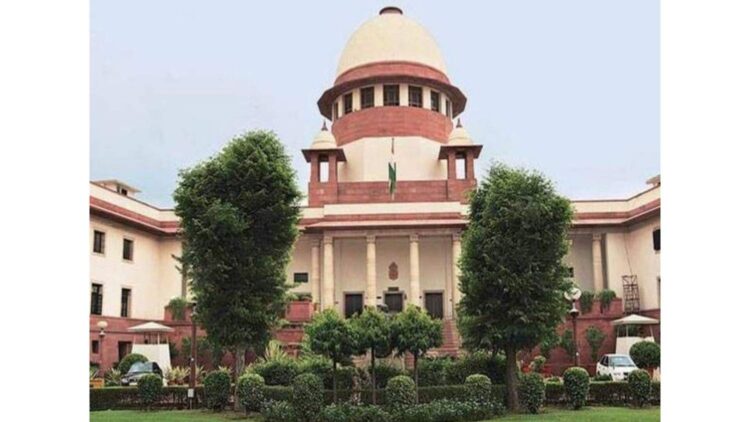The Supreme Court on Tuesday refused to consider the petition challenging the validity of a provision of the Puja Site (Special Provisions) Act, 1991, which preserves the character of religious places in the same way as he was present on August 15, 1947.
A bench of India’s Chief Justice Sanjeev Khanna and Justice Sanjay Kumar granted the petitioner the freedom to file an application in the pending case to challenge the Act. The Peetha said, “We are not willing to consider a PIL under Article 32. The petitioner can file an application.”
On February 17, the Chief Justice objected to several intervention applications filed in the case and other similar writ petitions, which either challenged the Act or demanded the implementation of the Act, and said that such applications should have a limit.
After this, the court passed a brief order and clarified that all the new petitions in the case would be considered dismissed, but these petitioners would have the freedom to file an application by raising a new basis in the upcoming case.
The new petition, which was heard today, also demanded a direction from the apex court to allow the courts to pass the proper order to find out the original religious character of a place of worship.
Petitioner, law student Nitin Upadhyay has challenged Section 4 (2) of the Act, which prohibits the proceedings to change the religious nature and prohibit the filing of new cases for it.
The petition stated, “The Center has encroached its legislative power by stopping judicial treatment, which is a basic feature of the Constitution. It is well established that the right to judicial treatment cannot be stopped by filing a case in the competent court, and the power of the courts cannot be reduced, and such denials are considered to be a violation of the basic features of the Constitution, which is a violation of the legislative power.”
It states that the Act has made the preservation and maintenance of religious character of places of worship mandatory, and changes in “structure, building, construction or building” have not been banned in these places.
The petitioner argued, “Structural changes are acceptable to restore the original religious character of the place.” The petition further stated that the Act does not stop any scientific or documentary survey to find out the religious character of a place.
Many petitions related to challenging the Act and strict implementation of the Act are pending in the Supreme Court. The petitions challenged the constitutional validity of Section 2, 3 and 4 of the Puja Site (Special Provisions) Act 1991, which he says that it violates the principles of secularism and law rule, which is an integral part of the Preamble of the Constitution and the original structure.
Maharaja Kumari Krishna Priya, daughter of Kashi royal family; BJP leader Subramanian Swamy; Former MP Chintamani Malaviya; Retired military officer Anil Kabotra; Advocate Chandrashekhar; Rudra Vikram Singh, a resident of Varanasi; Religious leader Swami Jeetendranand Saraswati; Mathura resident and religious guru Devkinandan Thakur ji and advocate Ashwini Upadhyay, including others, have filed petitions in the apex court against the 1991 Act.
Indian National Congress Party, CPI (ML), All India Majlis-e-Ittehad-ul-Musslimin (AIMIM) chief Asaduddin Owaisi, Jamiat Ulama-e-Hind, India Muslim Personal Law Board, Management Committee of Anjuman arrangement and Shahi Idgah Masjid Committee of Mathura Mathura Masjida Masjid Committee-Mathura Masjid Samiti- Applications were filed in the apex court against petitions challenging the validity of some provisions of.
He challenged the petitions filed by some Hindu petitioners and said that considering the petitions against the Act would cause floods of litigation against countless mosques across India. While filing an intervention application in the case, he demanded dismissal of petitions challenging the Act.










